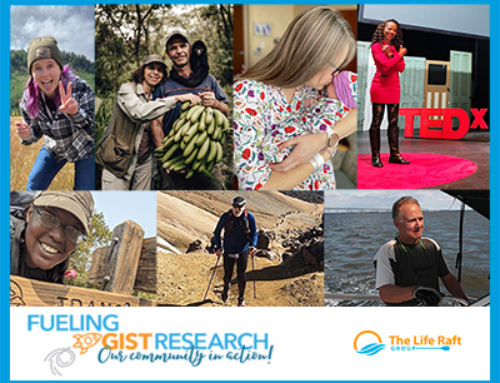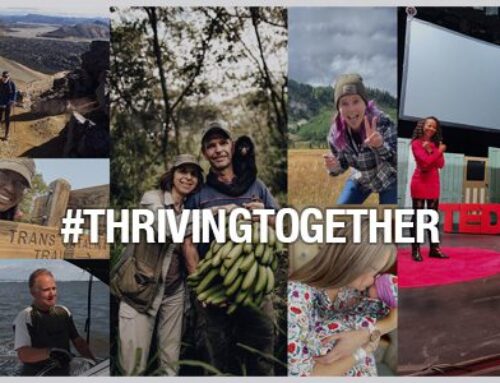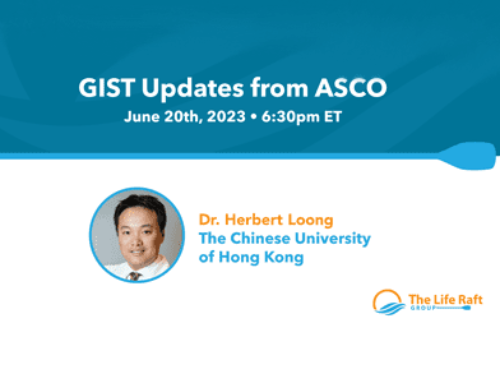New Horizons 2019 Meeting Gathers Advocates in NJ
 Not many of our readers know that The Life Raft Group has been involved with a global network of advocates since its inception. Every year country leaders gather to discuss scientific updates, regional issues, and unmet needs for the global GIST community. This international meeting was launched by Novartis Oncology in 2003 with the title, “New Horizons in Treating CML and GIST,” with the goal of uniting patient organizations representing people living with CML and GIST. A few years ago, the conference divided into two separate meetings—one focused on GIST and the other on CML. Since then, the New Horizons GIST Conference has been organized by a GIST Steering Committee that aims to unify the global GIST patient advocacy community with key opinion leaders and facilitate ways to increase survival worldwide. What you may not know is that these advocates have over the years become lifetime friends. We celebrate happy occasions together and commiserate when we lose dear friends. We have walked through GIST history together.
Not many of our readers know that The Life Raft Group has been involved with a global network of advocates since its inception. Every year country leaders gather to discuss scientific updates, regional issues, and unmet needs for the global GIST community. This international meeting was launched by Novartis Oncology in 2003 with the title, “New Horizons in Treating CML and GIST,” with the goal of uniting patient organizations representing people living with CML and GIST. A few years ago, the conference divided into two separate meetings—one focused on GIST and the other on CML. Since then, the New Horizons GIST Conference has been organized by a GIST Steering Committee that aims to unify the global GIST patient advocacy community with key opinion leaders and facilitate ways to increase survival worldwide. What you may not know is that these advocates have over the years become lifetime friends. We celebrate happy occasions together and commiserate when we lose dear friends. We have walked through GIST history together.
In May, The LRG happily reunited these advocates and hosted the large annual global conference called New Horizons GIST near our headquarters in Wayne, NJ. We had 45 participants from 18 countries. One of the meeting’s most important goals was to share relevant medical and scientific information about GIST, but just as important is the exchange of ideas and experiences that each one has had in their countries around topics such as collecting real world information, mutational testing, and advocacy efforts with health authorities.
Sharing Research Updates
Dr. Ping Chi from Memorial Sloan Kettering Cancer Center (MSKCC) spoke of the challenges of imatinib-resistant GIST, citing that 14% of patients experience primary resistance and 50% develop imatinib resistance after two years. She also discussed how there is a need to improve front-line therapy for KIT/PDGFRA wildtype GIST and explore better options for multiple refractory disease, as well as develop “liquid biopsies.”
Beyond the standard options of care, Dr. Ciara Kelly from MSKCC shared updates about two relevant clinical trials for the GIST community:
1. DCC-2618 (ripretinib) is designed to inhibit a broad spectrum of KIT mutations in exons 9, 11, 13, 14, 17 & 18 and PDGFRA in exon 18. Results show promising activity across all lines of therapy.
The INVICTUS Phase III trial of DCC-2618 vs. placebo in >/=4th line GIST patients is complete.
The INTRIGUE Phase III trial of DCC-2618 vs. sunitinib in 2nd line GIST patients is currently recruiting.
2. BLU-285 (avapritinib) is designed to interact with KIT and PDGFRA. Based on data from the NAVIGATOR study, avapritinib was granted Breakthrough Therapy Designation by the U.S. Food and Drug Administration (FDA) for the treatment of unresectable or metastatic PDGFRA D842V-mutant GIST.
Blueprint also recently submitted their first NDA (new drug application) to the FDA for approval.
There is encouraging activity in the VOYAGER Phase III trial BLU-285 vs. regorafenib.
Mutational Testing is Key
As the group learned about these scientific breakthroughs, a key takeaway was the importance of mutational testing. Physicians stressed the importance of personalized precision medicine as a new paradigm shift in oncology. They demonstrated that technology such as next generation sequencing performed in diseases such as GIST can yield results that may potentially match with targeted therapies, emphasizing the importance of treating the right patient with the right drug at the right time. Still, the question remains: How do we make this applicable within a global context when this type of testing is not affordable or accessible in many countries?
Even if the testing is available, is the targeted therapy available in the country or can the patient afford it?
As global patient advocates, we need to understand the broad range of challenges that patients face with this new era of precision oncology.
Real World Evidence
The second half of the meeting shifted to the power of real world evidence in order to educate and inform global representatives of how to apply it in their advocacy efforts. For example, electronic health records can provide one piece of information about a patient treatment journey, but are there other forms of data that can complete this picture, such as from registries, social media, apps, wearable data, and patient reported outcomes? There are lots of pros and cons in assessing the benefits and drawbacks of real world data, but we need to pay attention to how it is already at work in regulatory and coverage decisions. We were pleased to hear two presentations of ‘RWE in Action’ from Rodrigo Salas of Fundación GIST México and Piga Fernández of Fundación GIST Chile in which they demonstrated how data from their registries has made a positive impact in the creation of national registries and the enactment of cancer laws, respectively.
In summary, the group left energized and unified. We are so excited to continue the dialogue on how to bring information to light in these changing times and how we can support one another with these efforts.



